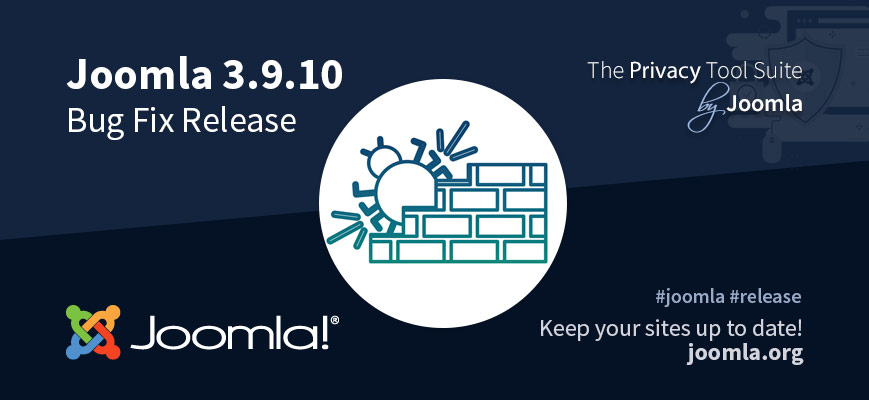What is Joomla?
Joomla! is an award-winning content management system (CMS), which enables you to build Web sites and powerful online applications. Many aspects, including its ease-of-use and extensibility, have made Joomla! the most popular Web site software available. Best of all, Joomla is an open source solution that is freely available to everyone. Joomla is designed to be easy to install and set up even if you’re not an advanced user. Many Web hosting services offer a single-click install, getting your new site up and running in just a few minutes.It’s a good day for the Joomla Project, as today we proudly announce the release of Joomla 3.9.10 – ‘The Privacy Tool Suite’ – marking the tenth minor release in the 3.x series.We hope you’re sitting comfortably because this new release packs in more than 250 improvements for the Joomla CMS – central to which is a full privacy tool suite, which will make site compliance faster and simpler (not to mention the lives of developers a whole lot easier)! With so much ground to cover, we’d better get to it. So …
Joomla 3.9.10 is now available. This is a bug fix release for the 3.x series of Joomla which addresses one bug introduced into 3.9.9, affecting template styles of multilingual web sites.
What’s in 3.9.10?
Joomla 3.9.10 is fixing one bug introduced into Joomla 3.9.9 which affects the template styles of multilingual sites and results in lost data.
IMPORTANT information for users who have already updated to 3.9.9 and faced this issue. Due to a bad sql update, the template style mapping to content languages has been lost. Unfortunately, this is an unrecoverable error. You must either:
- Restore the data manually by upgrading to Joomla 3.9.10 and then manually editing each template style and using the “Default” Field to the language required
- Or restore a 3.9.8 backup of your sites to recover the data before updating to Joomla 3.9.10.
We would like to take a moment to apologise to our users. Whilst we understand that a release which introduces a major bug is always serious – in this case the bug involved actual data loss from sites, this is a red flag for us. We are going to pause and look at how we can improve our release and testing strategies and report back to our users when this is complete, detailing how we aim to improve in the future.
At this early point though we can confirm that this bug was introduced during the development of 3.9.9 and unfortunately was not picked up in the week between the 3.9.9 Release Candidate and the 3.9.9 stable release.
